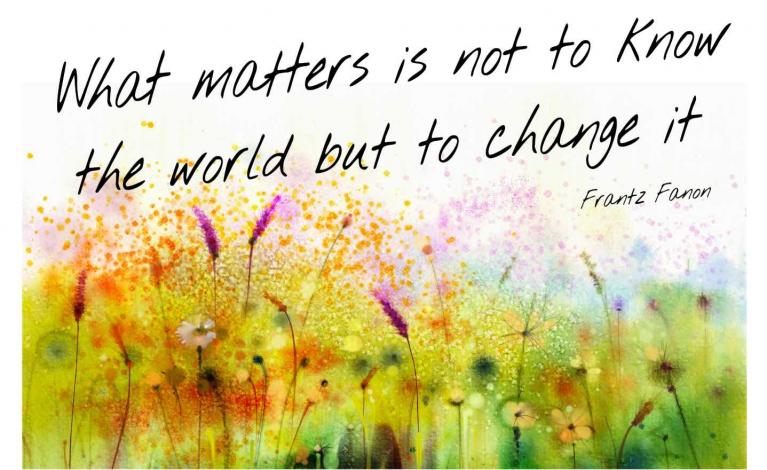Latest Resources

6 November 2019
Changing the discourse, policy and practice in farmer seed systems in Africa
The ACB is excited to share this new briefing paper (see below for English, French and Portuguese versions), highlighting key issues relating to recognition and support for farmer seed systems in Africa and beyond. Farmers’ seed constitutes the majority of seed used and exchanged. Crops produced from this seed contribute substantially to food and nutrition […]

18 October 2019
Prudence versus Pressure at the Seed Treaty
Will the critical need to address digital sequence information break the Seed Treaty’s effort to fix its benefit-sharing system? It probably should. (Veuillez cliquer ici pour le français) (Por favor, haga clic aquí para el español) In November 2019, the International Treaty on Plant Genetic Resources for Food and Agriculture (“Seed Treaty”) will meet in […]

8 October 2019
Crunch Time for the Seed Treaty
A review of some outstanding issues in the negotiation Will the effort to fix ITPGRFA’s broken benefit sharing system measure up to expectations? (Veuillez cliquer ici pour le français) (Por favor, haga clic aquí para el español) This paper reviews the key outstanding issues that are expected to be discussed by the ITPGRFA Governing Body, […]

16 April 2019
Agroecology as an alternative (Video four of a four-part series)
In August 2018, the Rural Women’s Assembly (RWA) and the African Centre for Biodiversity (ACB) hosted a speak-out for SADC smallholder farmers in Windhoek, Namibia, on Farm Input Subsidy Programmes (FISPs). FISPs are government agricultural programmes that promote Green Revolution inputs produced by multinational corporations, such as chemical fertilizers. In Ghana, for example, up to […]

20 March 2019
Alternatives to FISP: Farm Input Subsidy Programmes in Africa
In August 2018, the Rural Women’s Assembly (RWA) and the African Centre for Biodiversity (ACB) hosted a speak-out for SADC smallholder farmers in Windhoek, Namibia, on Farm Input Subsidy Programmes (FISPs). FISPs are government agricultural programmes that promote the use of Green Revolution inputs produced by multinational corporations. These top-down packages have proven to be […]

13 March 2019
Experiences of FISP: Farm Input Subsidy Programmes in Africa
In August 2018, the Rural Women’s Assembly (RWA) and the African Centre for Biodiversity (ACB) hosted a speak-out for SADC smallholder farmers in Windhoek, Namibia, on Farm Input Subsidy Programmes (FISPs). FISPs are government agricultural programmes that promote the use of Green Revolution inputs produced by multinational corporations. Farmers were not properly consulted about their […]

5 March 2019
WHY FARMERS FIND FISP PROBLEMATIC (Part 1 of 4 videos)
In August 2018, The Rural Women’s Assembly (RWA) and the African Centre for Biodiversity (ACB) hosted a speak-out with SADC smallholder farmers in Windhoek, Namibia, on Farm Input Subsidy Programmes (FISPs). FISPs are government agricultural programmes to promote the use of Green Revolution inputs (hybrid seed, synthetic fertilizer and agro-chemicals) produced by multinational corporations. WHY […]

17 September 2018
The SADC PVP Protocol: Blueprint for uptake of UPOV 1991 in Africa
In the recently published discussion paper, ‘The SADC PVP Protocol: Blueprint for uptake of UPOV 1991 in Africa’, Sabrina Masinjila and Mariam Mayet, provide an updated critique on the regional Plant Variety Protection (PVP) system developed under the auspices of the Southern African Development Community (SADC) – the SADC PVP protocol – adopted by the […]

10 September 2018
Report from SADC regional farmer speak out on farm input subsidy programmes
Rural Women’s Assembly (RWA) and African Centre for Biodiversity (ACB) jointly hosted a meeting of farmers and civil society organisations (CSOs) in August 2018 to share views and experiences on farm input subsidy programmes (FISPs) and public sector support for agroecology in the region. About 140 participants from Namibia, South Africa, Zimbabwe, Mozambique, Zambia, Malawi, […]

